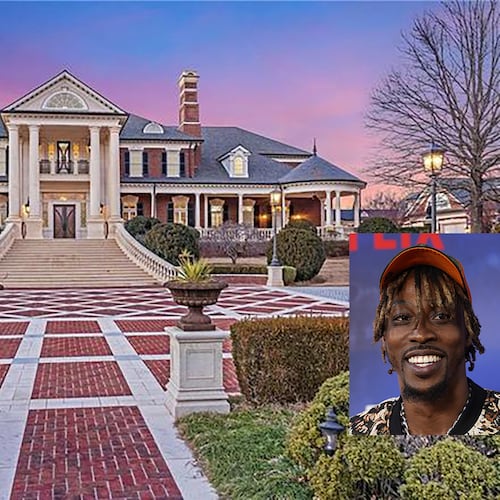Editor's Note: The following feature written by Bob Townsend appeared in the Oct. 30 AJC before Chesnutt's Nov. 1 concert at The Earl.
"I am a coward, " Vic Chesnutt proclaims in the harrowing opening song of his powerful new album. But "At the Cut" (Constellation) actually proves to be extremely courageous, charting Chesnutt's life and times of despair, suicidal tendencies and artistic inspiration in music that's weighty and full of hard human drama.
"It really is one of my most personal albums ever, " Chesnutt offers during a recent phone call from his home in Athens. "It's very much a kind of hallucinated memoir."
Chesnutt was born in Jacksonville, grew up south of Atlanta in rural Zebulon, and started writing songs when he was a child. In 1983, at the age of 18, a car accident left him partially paralyzed.
Perched onstage in a wheelchair, singing and playing his guitar, Chesnutt's diminutive presence has become an icon of the Athens music scene -- starting in 1990, when he released his debut album, "Little, " produced by R.E.M. singer Michael Stipe.
More than a dozen albums followed, including 2007's "North Star Deserter, " recorded in Montreal, with Fugazi's Guy Picciotto and members of several other indie/underground groups, including Thee Silver Mount Zion. "At the Cut" was made in the same studio with the same producer and musicians, who Chesnutt says came together as a band during the "North Star" tour, and are back with him this fall on another tour that includes a stop Sunday at the EARL in East Atlanta.
"It's the most powerful band a singer-songwriter has ever had, " Chesnutt says. "It's an incredible rock and roll brain trust, with Guy and the Silver Mount Zion band. They can do everything. I've played with a bunch of different bands -- Widespread Panic, Lambchop, Elf Power -- but nothing is like the power of this one. It's like a locomotive sometimes."
The force of the sound -- which features contrabass, violin and organ, in addition to noisy guitars -- permeates "At the Cut, " creating textures and dynamics that go from introspective whispers to primal screams. Throughout, Chesnutt footnotes writers and singers, such as Frank Norris, Woody Guthrie and Lawrence Ferlinghetti, in his starkly evocative lyrics.
"I made a conscious effort to talk about these points of reference, " he says. "It was part of the concept of the album. The cover photo of me was taken in the Metropolitan Museum of Art in New York City. The concept is all about that kind of inspiration and contemplation."
"Chinaberry Tree" is one of the centerpieces of the album, according to Chesnutt (one line became the album title), as he imagines doing battle with the common Southern trash tree, wielding a machete, "with a force heretofore unknown."
But the symbolism of that song stands in contrast to "Flirted With You All My Life" -- a devastatingly beautiful ode to choosing life rather than death that Chesnutt says was partly inspired by the music of the late Bahamian folk singer Exuma.
"It's kind of startling that I wrote the song and that it ended up being so successful, " Chesnutt says. "It's completely words from my own mouth. There's no fictional or rhetorical aspect to it. I'm a suicidal guy, and it's a breakup song with death. It's a love song and a breakup song. And I love the treatment of the song on the album. It's definitely one of the top five songs ever for me."
Chesnutt has always been outspoken about being an atheist. But with "It Is What It Is, " he goes beyond just missing deists to pointing the finger at pagans, too.
"They recently came out with this list of the most annoying words and phrases, " he says. " ‘It is what it is' was one of them. Man, I was so proud. The song is a hangdog manifesto. It starts out talking about how screwed up I am. And it moves into this declaration of my independence and my philosophical power, as opposed to my physical weakness. I tried to get this song knocked off the record, because I thought it was too strident. But everybody liked it, so it stayed."
Finally, though, "Granny, " the sweet, soft ode that closes "At the Cut, " stakes out Chesnutt's view of redemption in a visionary glimpse of his childhood.
"This song is very unique in my world, because I dreamed it, every line and even the melody, " Chesnutt says. "In my dream, I was looking up at my granny, from the perspective of a child. She was standing at the kitchen sink in her housedress and slippers, and I was crying and singing this song to her. She always told me, ‘You are the light of my life and the beat of my heart.' That's pretty great. I hope everybody's granny was telling them that when they were a kid."
About the Author
The Latest
Featured

